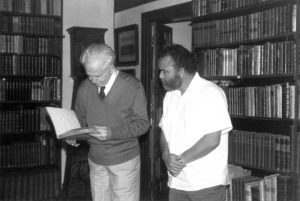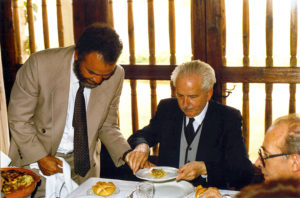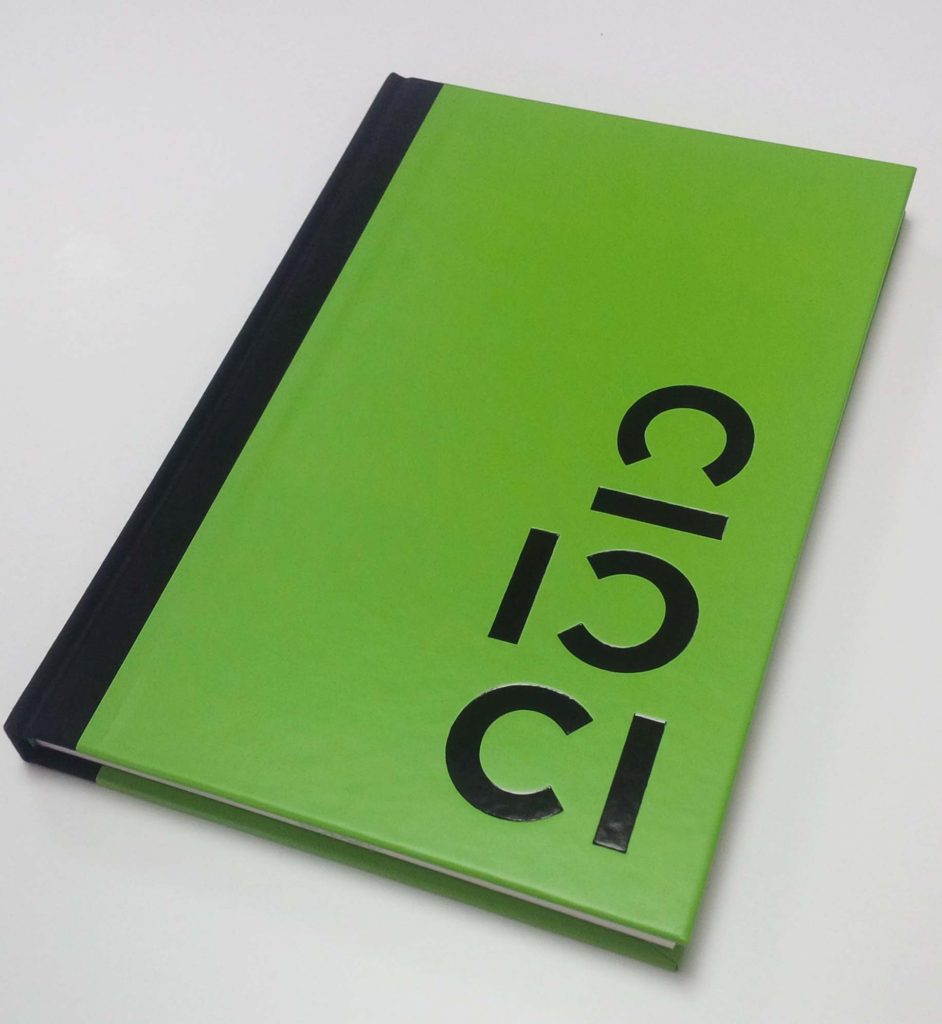Articles, Publications
Not of the letter but of the Spirit
Author(s): Julio Caro Baroja
Year of publication: 2018
City of publication: Madrid
Editorial: FUNCI
Number of pages: 125
ISBN: 978-84-09-11498-6
Price: 15 €
Go to Amazon to buy this book: https://funci.org/pagina-de-inicio/libros/mas-al-espiritu-que-a-la-letra/
Article theme: Al-Andalus, Ethnography, History, Islam, Julio Caro Baroja, Publications.
This book gathers different manuscripts, some of them already published and others completely new, from the ethnologist Julio Caro Baroja (Madrid, November 13th, 1914, Vera de Bidasoa, August, 18th, 1995). Julio Caro Baroja was the Honorific president of the Islamic Culture Foundation until his demise. This short book, carefully developed by designer Olga Pérez (FUNCI) intends to commemorate his figure and to remember his unconditional support both to FUNCI and to its president and friend, Cherif Abderrahman Jah. The book contains interesting reflections on friendship, wisdom and the Spanish Arabism, among other issues. It also includes a wide selection of pictures with Cherif Jah, as well as with the founders and friends of FUNCI in different activities.
The origin of our encounter
(Prologue to the conferences “Al-Andalus, eight centuries of History)
 Even though it is hard to explain, for a while I have had a relation with people who gather around Sheriff Abderrahman in Madrid. They are young and enthusiastic. This is what they have in common. Nothing else: as there are women and men, lawyers, doctors, architects, computer engineers, teachers, etc. etc. Every one of them comes from a different world or field.
Even though it is hard to explain, for a while I have had a relation with people who gather around Sheriff Abderrahman in Madrid. They are young and enthusiastic. This is what they have in common. Nothing else: as there are women and men, lawyers, doctors, architects, computer engineers, teachers, etc. etc. Every one of them comes from a different world or field.
However, they are linked by ties of fraternity, common interests, collaborative work. The “Sheriff” has had the power to unite them, to form a very singular association which, in my opinion, surpasses its initial intentions. These focused in the study of Western Islam and its relation with Spain. A subject that seems, at first, for the scholars, the Arabists, the men of Science, the specialists.
Those who form this group, however, are not such specialists, in this particular branch of Arabism, or what it is now called Islamology. They are persons who have had an intuition: that the peoples, to understand better themselves and each other, need to know their past and the other’s past, sometimes clouded by quarrels and recent hostilities, which have not led to anything good.
To know oneself more and better
 The Sherrif Abderrahman represents that tendency to know oneself more and better, outside specialties, schools and tendencies. He has a deep idea of what it is to know and what knowledge is, something that, without doubt, comes from long ago, from the Islamic philosophy and Theology. A synthetic idea, more than analytical; an idea that understand mores the spirit that the words or letters.
The Sherrif Abderrahman represents that tendency to know oneself more and better, outside specialties, schools and tendencies. He has a deep idea of what it is to know and what knowledge is, something that, without doubt, comes from long ago, from the Islamic philosophy and Theology. A synthetic idea, more than analytical; an idea that understand mores the spirit that the words or letters.
When, during the year of 1952, I spent some months in the Sahara, I had the chance of meeting some literate men, also some ancient sheikhs from a nomad group, who had a close idea, although not similar, to what knowledge is. Since then, I have thought about it repeatedly, although my life has passed cultivating, not knowledge, but little knowledges, small plots of knowledge, learning things that very probably, and reproducing the words of Cervantes (although not literally), one wouldn’t miss anything in stopping to find them out.
Today I found myself joining this group, and in spite of my age, that gives me a youthful illusion, in the years in which it is said (and it is also real) than most of illusions are lost and projects abandoned.
Julio Caro Baroja


